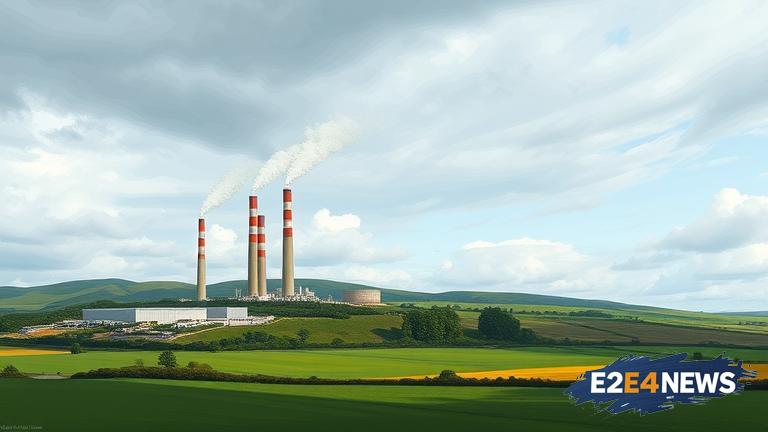In a move that has sparked widespread controversy, An Bord Pleanála has granted permission for the construction of a gas-powered power plant in Kentstown, County Meath. The decision has been met with fierce opposition from local residents and environmental groups, who argue that the plant will have devastating consequences for the local ecosystem and contribute to climate change. The plant, which will be operated by a private energy company, is expected to generate 150 megawatts of electricity, enough to power approximately 150,000 homes. However, critics argue that the plant will be a major source of greenhouse gas emissions, including carbon dioxide and methane, which will exacerbate the already pressing issue of climate change. Furthermore, the plant will be fueled by fracked gas, which has been linked to a range of environmental and health problems. Local residents have expressed concerns about the potential impact of the plant on their health and wellbeing, as well as the potential for accidents and explosions. Despite these concerns, An Bord Pleanála has deemed the plant to be in compliance with national and EU regulations, and has granted permission for its construction. The decision has been welcomed by the energy company, which argues that the plant will provide a reliable source of energy and help to reduce the country’s reliance on imported fuels. However, environmental groups have vowed to continue their opposition to the plant, and are exploring options for appealing the decision. The controversy surrounding the Kentstown gas power plant is just one example of the ongoing debate about the role of fossil fuels in Ireland’s energy mix. As the country seeks to reduce its greenhouse gas emissions and transition to a low-carbon economy, the construction of new gas-powered plants has become increasingly contentious. Many argue that the focus should be on developing renewable energy sources, such as wind and solar power, rather than investing in fossil fuel infrastructure. The Irish government has set ambitious targets for reducing greenhouse gas emissions, but the approval of the Kentstown plant has raised questions about its commitment to meeting these targets. The decision has also sparked concerns about the potential for other gas-powered plants to be approved in the future, which could undermine efforts to reduce emissions and transition to a low-carbon economy. In addition to the environmental concerns, the construction of the plant is also expected to have significant economic implications. The energy company has argued that the plant will create jobs and stimulate local economic growth, but critics argue that these benefits will be outweighed by the costs of environmental degradation and health problems. The controversy surrounding the Kentstown gas power plant is a complex and multifaceted issue, with different stakeholders holding strongly opposing views. As the debate continues, it is clear that the decision to approve the plant will have far-reaching consequences for the environment, the economy, and the health and wellbeing of local residents. The plant is expected to be operational by 2027, and will have a lifespan of approximately 20 years. During this time, it is expected to generate significant revenues for the energy company, but will also be a major source of greenhouse gas emissions. The approval of the plant has also raised questions about the effectiveness of Ireland’s regulatory framework, and the ability of An Bord Pleanála to make decisions that are in the best interests of the environment and local communities. In response to the decision, environmental groups have called for a review of the regulatory framework, and for greater transparency and accountability in the decision-making process. The controversy surrounding the Kentstown gas power plant is a timely reminder of the need for careful consideration and planning in the development of energy infrastructure. As Ireland seeks to transition to a low-carbon economy, it is essential that decisions are made with the long-term interests of the environment and local communities in mind. The approval of the Kentstown plant has significant implications for the future of energy production in Ireland, and will be closely watched by stakeholders across the country. In the coming months and years, it is likely that the controversy surrounding the plant will continue to simmer, with ongoing debates and discussions about the merits and drawbacks of the project. Ultimately, the decision to approve the Kentstown gas power plant will have far-reaching consequences for the environment, the economy, and the health and wellbeing of local residents, and will be a major test of Ireland’s commitment to reducing greenhouse gas emissions and transitioning to a low-carbon economy.





